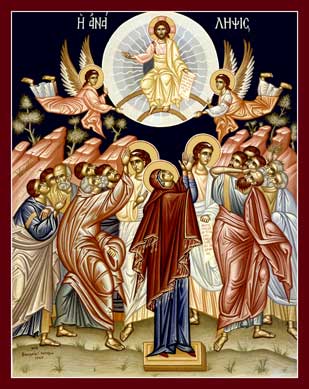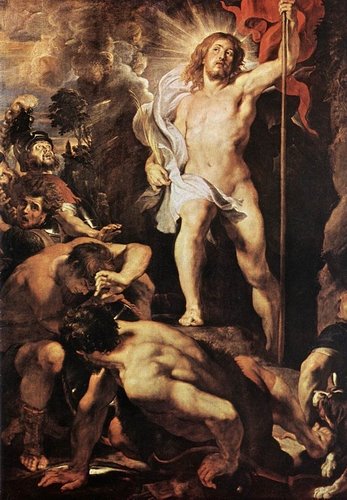
“For God so loved the world He gave His only begotten (μονογενής) Son…” These words have resonated in the ears and hearts of people all over the globe for ages, Christians and non-believers alike. One of the most famous passages in all of scripture (John 3:16) has always reminded us of Jesus as God’s only Son, but is it possible we might have missed something about Him that was integral to the original audience’s perception of who Jesus was? What did it mean to them? Did the early Christian community see Jesus as God’s only Son? And what of Him being the only begotten? Is it possible that our modern, post-enlightenment lenses have tainted the reading of an eastern Semitic text relying primarily on the theology of the Hebrew bible as its foundation?
These are interesting questions that have sparked much debate over the centuries and is deserving of our attention today as we strive to know Christ and who He is as adequately as we can from the scriptures. The Council of Nicea in 325 AD dealt with the Arians who used the “begotten” language to say there was a time when Christ was not and that He was a created being, denying His co-equal, co-eternal identity with God. This was dealt with and recognized as heresy and is not part of our question. The question at hand is in regards to the proper use of “μονογενής” in the NT in general, and in the gospel of John in particular. When approaching these texts, we will need to be careful not to read theological presuppositions into the documents to the best of our abilities in order to allow the text to speak for itself. The “μονογενής” language in Johns gospel is important to His Christology due to its calculated placement (John 1:14, 18; 3:16, 18; further attestation in the Johanine corpus can be found in 1 John 4:9).
* “And the Word became flesh and dwelt among us, and we saw His glory, glory as of the only begotten (μονογενής) from the Father, full of grace and truth” – John 1:14
* “No one has seen God at any time; the only begotten (μονογενής θεός) God who is in the bosom of the Father, He has explained Him” – John 1:18
* “For God so loved the world, He gave His only begotten (μονογενής) Son…” – John 3:16a
* “He who believes in Him is not judged; he who does not believe has been judged already, because he has not believed in the name of the only begotten (μονογενής) Son of God” – John 3:18
At first glance we see John apparently concluding that Jesus is God’s ONLY son. This would be the case if “μονογενής” is taken in John as it is apparently understood in Luke (7:12; 8:42; 9:38 from stories without messianic overtones). What makes John’s use of “μονογενής” problematic is that Luke is not the only other place we see this language used. In Hebrews 11:17 we see “μονογενή” used in the context of Isaac being Abraham’s child of promise. Now what is interesting about this use is the fact that Isaac was not Abraham’s only son, but he was his “beloved” son (Gen.22:2, 12, 16 in LXX). Abraham also had previously had Ismael, who was not the son of promise, the chosen son as was Isaac.
Is it possible then to say that John could be using “μονογενής” in the same way as the author of Hebrews in regards to Abraham’s relationship with Isaac as the “child of promise”, the “chosen” or “elect” son? If so, then the implications for Johanine Christology could be great. Is Jesus the “only” son of God, or is He the “unique, elect, or chosen” son of God? If so, does God have other sons? I hope this question sparks conversation and I will be further addressing this question and how I think John answers it in a post soon.



 Hope is a hard commodity to come by these days. In a time of economic “crisis”, political turmoil, unstable foreign relations, and even war, many Evangelical Christians have a hard time believing that they have anything to say to the lost and dying world in regards to supplying this precious commodity in the present. After talking to many of these Christians, many tend to retreat to the idea that “well, we will all go to heaven when we die” as if to escape any glimpse of this precious commodity we call hope in the present life. We try to muster up enough looking towards a relatively uncertain post-mortem state in the place we call “heaven” leaving the world to its demise. As Christians with a hope resembling that of a battered child we pray our Presidents and politicians we vote in can give us a glimpse of this precious commodity by implementing policies that will somehow help the nation we live in with its socio-economic and moral distresses. The on-looking pagan world looks for hope and hears of a far off gospel about going to heaven when we die, looks around at the world around them, and sees little need to believe in that which has no real power to change the world. In the Southern Baptist Convention of which church I have been a part of, our own Baptist Faith and Message seems to agree with this frail line of thought. Article 10 on last things reads as such:
Hope is a hard commodity to come by these days. In a time of economic “crisis”, political turmoil, unstable foreign relations, and even war, many Evangelical Christians have a hard time believing that they have anything to say to the lost and dying world in regards to supplying this precious commodity in the present. After talking to many of these Christians, many tend to retreat to the idea that “well, we will all go to heaven when we die” as if to escape any glimpse of this precious commodity we call hope in the present life. We try to muster up enough looking towards a relatively uncertain post-mortem state in the place we call “heaven” leaving the world to its demise. As Christians with a hope resembling that of a battered child we pray our Presidents and politicians we vote in can give us a glimpse of this precious commodity by implementing policies that will somehow help the nation we live in with its socio-economic and moral distresses. The on-looking pagan world looks for hope and hears of a far off gospel about going to heaven when we die, looks around at the world around them, and sees little need to believe in that which has no real power to change the world. In the Southern Baptist Convention of which church I have been a part of, our own Baptist Faith and Message seems to agree with this frail line of thought. Article 10 on last things reads as such: